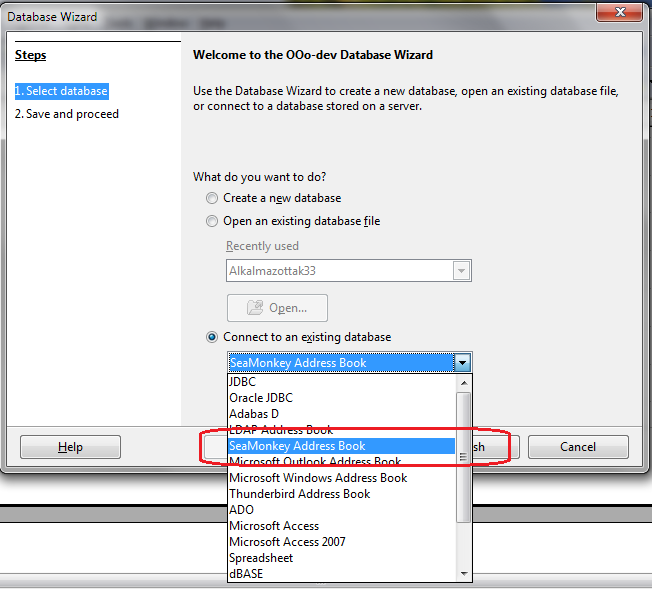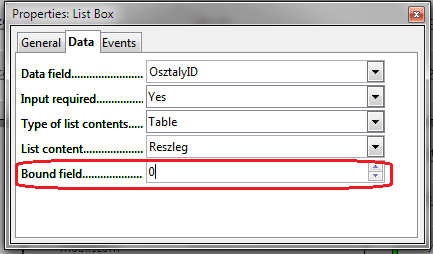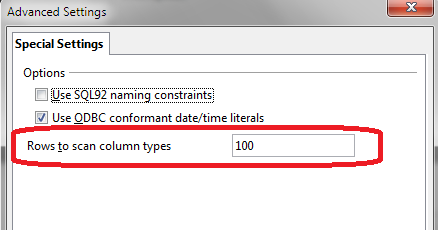Base/New features in 3 4
OOo Base 3.4 new features
This version contains mostly bugfixes, only small number of new features introduced in this version.
The HSQLDB 2.x built-in database engine integration, postponed again, now clear that the next version will contain the actual version of HSQLDB.
The new features listed below:
Main Base window
Object trees: selecting entries by typing their name
The tree lists in Base's main application window, now support selecting entries by typing their name.
This "select as you type" feature, works pretty much like the same feature in normal list boxes
(in fact, the implementation for the latter has simply been outsourced, abstracted, and applied to tree lists), i.e.:
- typing some letters will select the entry which starts with those letters
- typing the same letter repeatedly will cycle through the entries which start with this letter, assuming there is no single entry which starts with multiple occurrences of it
- the internal search string, assembled by the characters you type, is reset after a small amount of time of inactivity
- selecting entries by other means than the quick search (e.g. the keyboard or the mouse) also resets the internal search string
Mozilla Address Book support removed, in favour of Seamonkey
Since the Mozilla product has long been superseded by the SeaMonkey suite, and the profile formats of both changed incompatibly, the Mozilla Address Book support in Apache OpenOffice has been removed, in favor of support for the SeaMonkey address books.
This means that all places in the UI which referred to a Mozilla Address Book (e.g. in the "New Database" wizard) have been adjusted to refer to SeaMonkey instead.
Also, existing .odb documents accessing Mozilla Address Books will now attempt to access SeaMonkey Address Books.
Forms
List box controls: "Bound field" is allowed to be 0, too
The "Bound field" property of a list box control, specifying which column of the list boxes result set should be used for data exchange, can have the value "0" now.
Given that the value was always 0-based (i.e. "1" refers to the second column in the result set), the former minimum value "1" implied that the list result set must have at least two columns for the list box to be of use.
There was no real reason for this limitation to not allow "0" (except some stone-aged implementation quirks, which have been exorcised), so it has been removed.
Scan rows for correct type information for Text databases
The MaxRowScan setting allows defining how many rows should be scanned to find the correct type of column. In the past, only the first row was scanned.
You can set it in Edit → Database → Advanced settings → Special settings tab, for text source connected databases.


